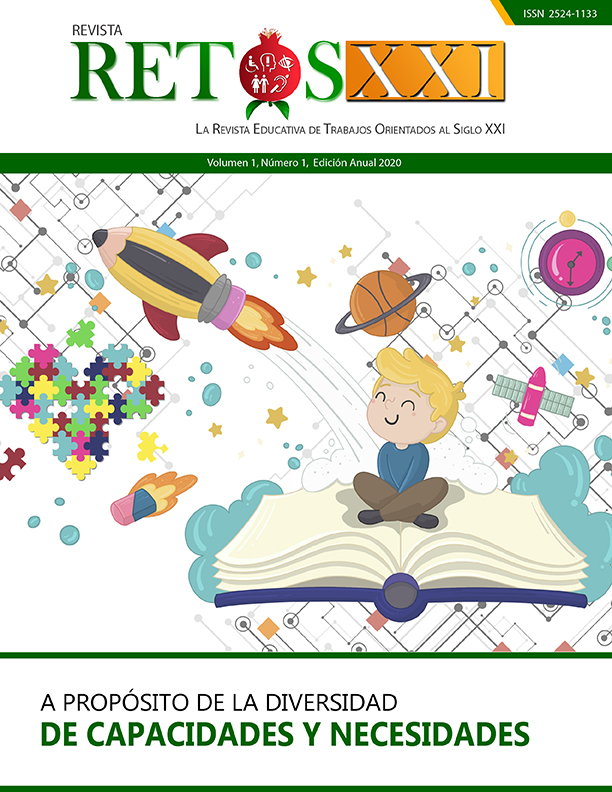Cambio paradigmático como plataforma para las oportunidades tecnológicas en la educación superior: un caso real a partir del uso de un simulador de gestión de negocios como técnica de enseñanza a nivel país
DOI:
https://doi.org/10.30827/retosxxi.4.2020.24237Palabras clave:
Inclusión, negocios, paradigma, simulacionResumen
Se presenta el resultado de un trabajo realizado a partir de la iniciativa de incorporar un simulador de gestión de negocios como técnica de enseñanza a nivel de licenciatura, cuya experiencia se estudia para determinar si durante la simulación llevada a cabo durante el primer cuatrimestre del año 2019, los estudiantes experimentaron limitaciones relacionadas con el uso de equipo y recursos tecnológicos, ya que existe en el imaginario de los funcionarios de la Universidad Estatal a Distancia (UNED) de Costa Rica, el paradigma de que los estudiantes de este centro de educación superior, tienen dificultades para contar con el equipo y acceso a los recursos tecnológicos, lo cual fue una de las principales preocupaciones cuando se planeó la incorporación de dicha técnica de enseñanza a nivel de todo el país. Debido a lo anterior, una vez finalizada la experiencia de simulación de gestión de negocios, la población participante fue encuestada, para determinar la existencia o no de la problemática vinculada con la limitación de acceso a equipo y recursos tecnológicos, encontrándose resultados contrarios al paradigma que estaba presente en el imaginario de los funcionarios de la universidad.
Descargas
Publicado
Versiones
- 2020-07-07 (2)
- 2020-07-07 (1)
Cómo citar
Número
Sección
Licencia
Derechos de autor 2020 Álvaro García Otárola, María Gabriela Romero Valverde, Marieta Elizondo Soto

Esta obra está bajo una licencia internacional Creative Commons Atribución-NoComercial-CompartirIgual 4.0.












